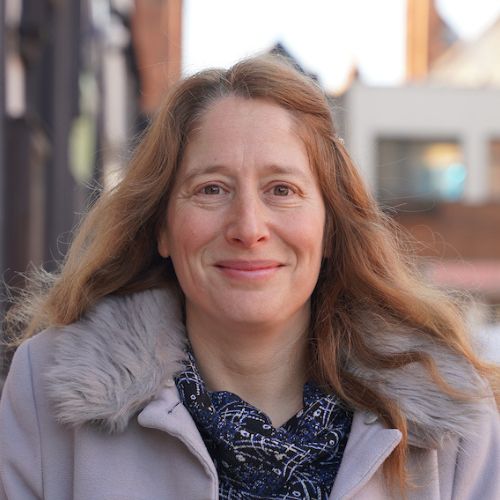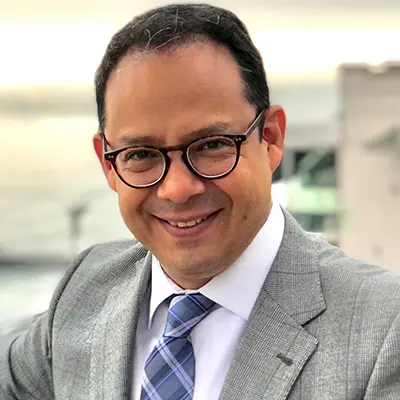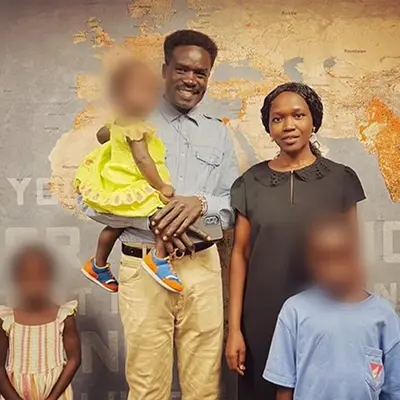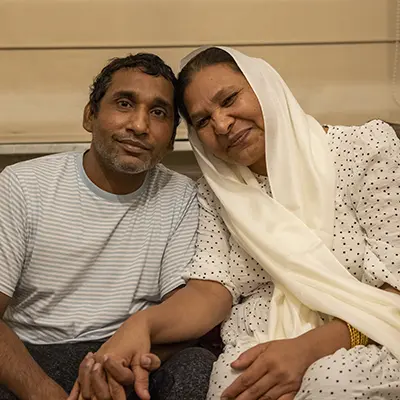Experts argue that the court is “required” to safeguard freedom of expression for censored social media star
Kika Nieto hopes Court will uphold fundamental freedoms
COLOMBIA (5 August 2021) – Will the right to share Christian views online be safeguarded? Today, the human rights organization ADF International filed a brief in the censorship case of Erika “Kika” Nieto, calling for the protection of freedom of speech. This June, the Colombian Constitutional Court decided it will review the social media star’s case. Responding to a viewer’s question in an “Ask Me Anything” video in 2018, Nieto had shared her beliefs on marriage while expressing tolerance for other views. After an activist complained about her statement, a national court denied her right to freedom of expression by ordering her to remove the video. Nieto now hopes the Colombian Constitutional Court will uphold her right to freely share her beliefs online.
“The right to express moral and religious convictions must be safeguarded. In our brief we highlight that Nieto’s statements are expressions of religious convictions that are worthy of special protection, as enshrined in both national and international human rights law. If we value a free society, protecting the right to speak freely is paramount. Censorship leads to tyranny, but debate fosters a free flow of ideas that is conducive to critical thinking and protects freedom of thought,” said Tomás Henríquez, Director of Advocacy, Latin America and the Caribbean for ADF International, a human rights organization supporting Kika Nieto’s case.
Fundamental importance of freedom of expression
In the brief, ADF International legal experts argue that since Nieto’s statements lack any element of “incitement to violence” and, on the contrary, express tolerance for different views, Nieto’s remarks do not contain elements that could warrant her being censured or sanctioned given the robust protection that exists for freedom expression in both national and international law. Thus “the censorship imposed by the court of second instance constitutes a violation of human rights, since there is no law restricting Erika Nieto’s freedom of expression that contemplates the measure of censorship of her video of which she has been the victim.”
Censored for sharing Christian convictions
Answering a follower’s question on her YouTube video, Nieto shared her beliefs about marriage as between a man and a woman with her millions of followers. She said: “I really hope that everyone who is watching this video knows that not all people have the same opinion and that’s okay. I think that God made us all and created man and created woman for man to be with woman and woman to be with man and that’s it, whatever we have done after that as man with man and woman with woman I think it’s not right. However, I do have friends who are gay, I have friends who are lesbian, I love them with all my heart and if I know one thing and I am completely sure of it, it is that God is love. And he calls me to love people. Without judging them.” *
Activists filed legal complaint
There is good reason to think the Colombian Constitutional Court will uphold Nieto’s right to freedom of speech. In a previous case that arose from the same video, the Court has already ruled that Nieto’s speech on marriage is constitutionally protected. However, another activist took Nieto to court, complaining that this same comment about marriage was offensive and discriminatory. This time, a lower court considered the video to contain “hate speech” and thus ordered its removal from YouTube. The Colombian Constitutional Court decided to review the lower court’s ruling this June.
The Colombian NGO Nueva Democracia — a civil society platform advocating for freedom of expression and other fundamental rights — is representing Nieto in the current case. They now ask the Constitutional Court to uphold fundamental freedoms and overturn the lower court’s decision.
*translated from Spanish








